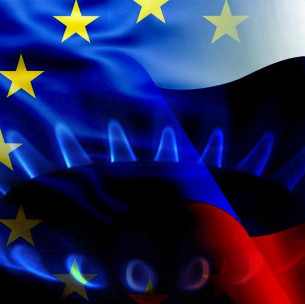The recent unofficial visit of Ukrainian president Viktor Yushchenko to Georgia failed to draw a lot of attention of the world media, possibly on account of its informal and nearly tourist-recreational character. Indeed, outwardly it looked like another get-together of the two "good old friends", what with the sightseeing tours, the tasting of local wines and cuisine, concerts and late-night parties with a few hand-picked chums. The press was allowed to cover Yushchenko's visit only in muted tones.
In general, Ukrainian president's arrival in Georgia was presented as a new step in fostering the personal ties of the two "velvet revolutionaries", following their previous informal meeting during a joint skiing outing in the Carpathians at the beginning of this year. Yushchenko's return visit was meant to demonstrate the close relations of the two politicians and the coincidence of their views and tastes, both gastronomic and political.
M. Saakashvili showed his guest the old capital of Georgia, Mtskheta, the ancient temple in Kutaisi, the wine cellars in Kakhetia and even took him for a helicopter ride to the mountains of Svanetia, on the border with Abkhazia, to admire the age-old watchtowers. But the key political event of the three-day visit by the "orange revolution" leader to hospitable Georgia was the signing of the joint "Declaration on the Defense of Freedom and Democracy" at the health resort of Borjomi.
Speaking to journalists at the former palace of the Russian imperial dynasty of the Romanovs, specially retouched for Yushchenko's visit, the presidents of Ukraine and Georgia announced their plans for the "promotion and defense of freedom and democracy in the region". Saakashvili, in particular, said that his Ukrainian counterpart had agreed to having a special summit convened in Kiev this fall for the purpose of "setting up a coalition of democratic states".
For his turn, Yushchenko vaguely outlined the membership of the prospective Kiev meeting, noting that he "would like to see at the summit leaders of the Baltic, Black Sea and Caspian regions, as well as representatives from Russia, the European Union and the USA". Speaking also on behalf of his host, he stressed that they both "would like to know what values and freedoms our neighbors hold dear, how they defend them, how they correspond to our ideas of these values".
After signing the Borjomi declaration, the Ukrainian president's press service explained that the document provides for the setting up in the Baltic-Black Sea-Caspian region of some sort of a "commonwealth of democracies" - the so-called "Community of Democratic Choice". The declared objective of the new organization would be to "transform it in a powerful tool of freeing the region from all the remaining demarcation lines, from violation of human rights, from all spirit of confrontation, from held-up conflicts". According to the Georgian and Ukrainian leaders, all this would "make it possible to open up a new era of democracy, security, stability and peace in all Europe, from the Atlantic to the Caspian Sea".
Experts noted that the Borjomi Declaration is a follow-up to the idea of expanding GUAM (comprising at present Georgia, Ukraine, Azerbaijan and Moldavia) put forward by Saakashvili and Yushchenko at the Kishinev summit of that organization last April, and of using it as a base for a coalition of "truly democratic states" to be built on post-Soviet territory.
Observers also indicate that the axis "Kiev-Tbilisi" vigorously forged with US assistance is unmistakably directed against Moscow. It is noteworthy, if proof were needed, that Moscow would be invited to the Kiev summit not a full-fledged participant, but only as an observer. The pledges to grant the same status to the USA and the European Union change nothing. Remarkably also, Yushchenko's visit was timed to be held against the background of the beginning of the withdrawal of the Russian military bases from Georgia, while the visit itself, originally scheduled for the end of July, was postponed due to, as Georgian media had it, the threat of a bombing of the plane of the Ukrainian leader by "Russian GRU commandos".
Another curious aspect of the latest "cordial meeting" of the leaders of Ukraine and Georgia is its having been held two weeks before the regular CIS summit in Kazan. Some analysts believe that the Borjomi pronouncements perfectly fit the pattern of joint efforts made by Kiev and Tbilisi to set up a "democratic alternative" to the CIS and tear the Commonwealth down, as opposed to Moscow's efforts to reform it. Truth to tell, this idea of Saakashvili-Yushchenko, as authoritative Russian experts believe, is hardly likely to get the support of the other CIS presidents and is largely of a propaganda character as yet.
On the whole, the latest meeting of the two revolutionary brothers-in-arms demonstrated once again that their entente is based not only on the absolute following of the US lead and commitment to "Western democratic values", but also on a common interest in limiting Russian influence on post-Soviet territory. Kiev and Tbilisi make no secret that they intend to continue supporting each other in their efforts to speed up the dismantling of Russia's military presence in Trans-Caucasia, the Crimea and Cis-Dniestria, as well as to curtail Moscow's say in the settlement of the Cis-Dniestrian, Abkhazian and South-Ossetian conflicts. ,









